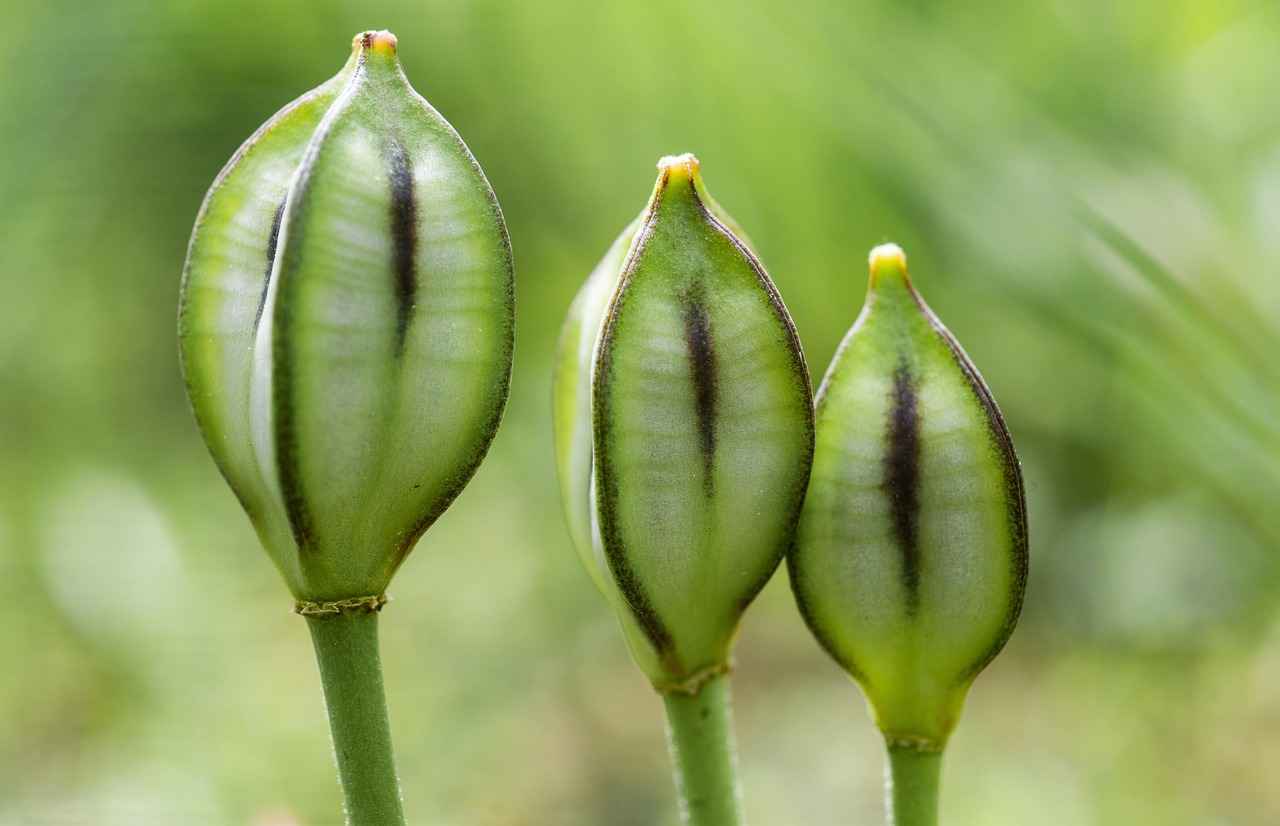Chia seeds have gained significant attention in the health and wellness community due to their impressive nutritional profile and numerous health benefits. These tiny seeds, derived from the Salvia hispanica plant, are rich in essential nutrients that can enhance your overall well-being. In this article, we will explore the various health benefits of chia seeds and why you should consider incorporating them into your daily diet.
Chia seeds are small, oval-shaped seeds that can be found in either black or white varieties. They are known for their ability to absorb water, expanding up to 10-12 times their size when soaked. This unique characteristic not only makes them a versatile food ingredient but also contributes to their health benefits.
Chia seeds are often labeled as a superfood because they are packed with vital nutrients. They contain:
- Omega-3 fatty acids: Essential for heart health and brain function.
- Fiber: Aids in digestion and promotes feelings of fullness.
- Protein: Supports muscle repair and growth.
- Antioxidants: Help combat oxidative stress and inflammation.
Incorporating chia seeds into your diet can significantly benefit your heart health. Their high content of omega-3 fatty acids helps lower cholesterol levels and reduce inflammation, which are crucial for maintaining a healthy cardiovascular system.
Chia seeds are an excellent addition to a weight management plan. Their high fiber content promotes a sense of fullness, which can help reduce overall calorie intake. This makes them a valuable ally for those looking to lose or maintain weight.
The fiber in chia seeds plays a vital role in promoting digestive health. It helps regulate bowel movements and supports a healthy gut microbiome, which is essential for overall digestive function.
Chia seeds are also an excellent source of essential minerals such as calcium, magnesium, and phosphorus. These nutrients are crucial for maintaining strong bones and preventing conditions like osteoporosis.
Due to their nutrient density, chia seeds provide a sustained energy boost, making them an ideal snack for athletes and anyone needing a quick pick-me-up throughout the day.
While chia seeds are generally safe for most people, moderation is key. Excessive consumption may lead to digestive issues or allergic reactions in some individuals. It’s essential to listen to your body and adjust your intake accordingly.
Chia seeds are incredibly versatile and can be easily added to various dishes. Here are some practical ways to incorporate them into your daily meals:
- Add them to smoothies for a nutrient boost.
- Mix them into oatmeal or yogurt for added texture.
- Use them in baking recipes, such as muffins or energy bars.
When purchasing chia seeds, it’s important to choose high-quality options. Look for brands that offer organic, non-GMO chia seeds to ensure you are getting the best product for your health.
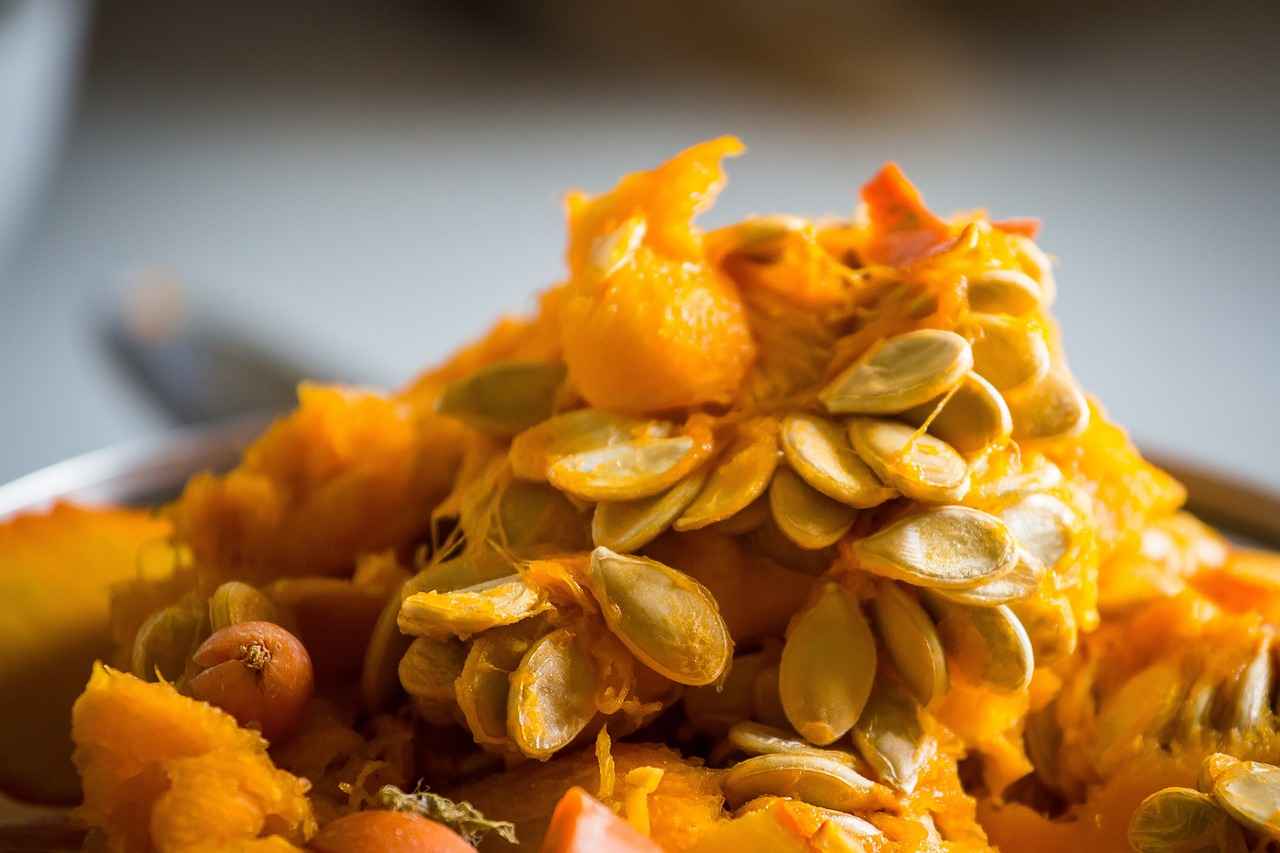
What Are Chia Seeds?
Chia seeds are small yet powerful seeds derived from the Salvia hispanica plant, which is native to Central America. These seeds are available in both black and white varieties, and they have gained immense popularity as a superfood due to their remarkable nutritional profile. Rich in essential nutrients, chia seeds are not only versatile in culinary applications but also provide numerous health benefits that can enhance overall well-being.
Chia seeds are an abundant source of omega-3 fatty acids, which are essential for maintaining heart health. They also contain a significant amount of fiber, which aids in digestion and promotes a feeling of fullness. Additionally, chia seeds are packed with protein, making them an excellent choice for vegetarians and vegans looking to boost their protein intake. Furthermore, these seeds are rich in antioxidants, which help combat oxidative stress in the body.
The high levels of omega-3 fatty acids found in chia seeds can help lower cholesterol levels and reduce inflammation, both of which are crucial for maintaining a healthy heart. Studies have shown that regular consumption of chia seeds may lead to improved cardiovascular health, making them a valuable addition to a heart-healthy diet.
One of the standout features of chia seeds is their ability to absorb liquid and expand in the stomach, which can promote feelings of fullness. This satiety effect may help individuals manage their calorie intake, making chia seeds a beneficial component of weight loss or management plans.
Chia seeds are an excellent source of dietary fiber, with a single serving providing a substantial amount of the recommended daily intake. This fiber content aids in promoting regular bowel movements and supports a healthy gut microbiome, which is essential for overall digestive health.
Rich in essential minerals such as calcium, magnesium, and phosphorus, chia seeds play a vital role in maintaining strong bones. These nutrients are crucial for bone density and can help prevent conditions like osteoporosis, making chia seeds a smart choice for those looking to support their skeletal health.
Due to their nutrient density, chia seeds provide a sustained energy release, making them an ideal snack for athletes or anyone needing a quick energy boost throughout the day. Incorporating chia seeds into your diet can help maintain energy levels, especially during periods of physical activity.
While chia seeds are generally safe for most individuals, excessive consumption may lead to digestive issues such as bloating or gas. It is essential to introduce them gradually into your diet and consume them in moderation to avoid any adverse effects.
- Add chia seeds to your morning smoothie for an extra nutritional boost.
- Mix them into yogurt or oatmeal for added texture and health benefits.
- Use chia seeds as an egg substitute in baking by mixing them with water.
- Sprinkle them on salads or incorporate them into homemade energy bars.
When purchasing chia seeds, it is important to choose reputable brands that offer organic, non-GMO options. This ensures that you are getting high-quality seeds that can provide maximum health benefits. Look for products that are packaged in airtight containers to maintain freshness.
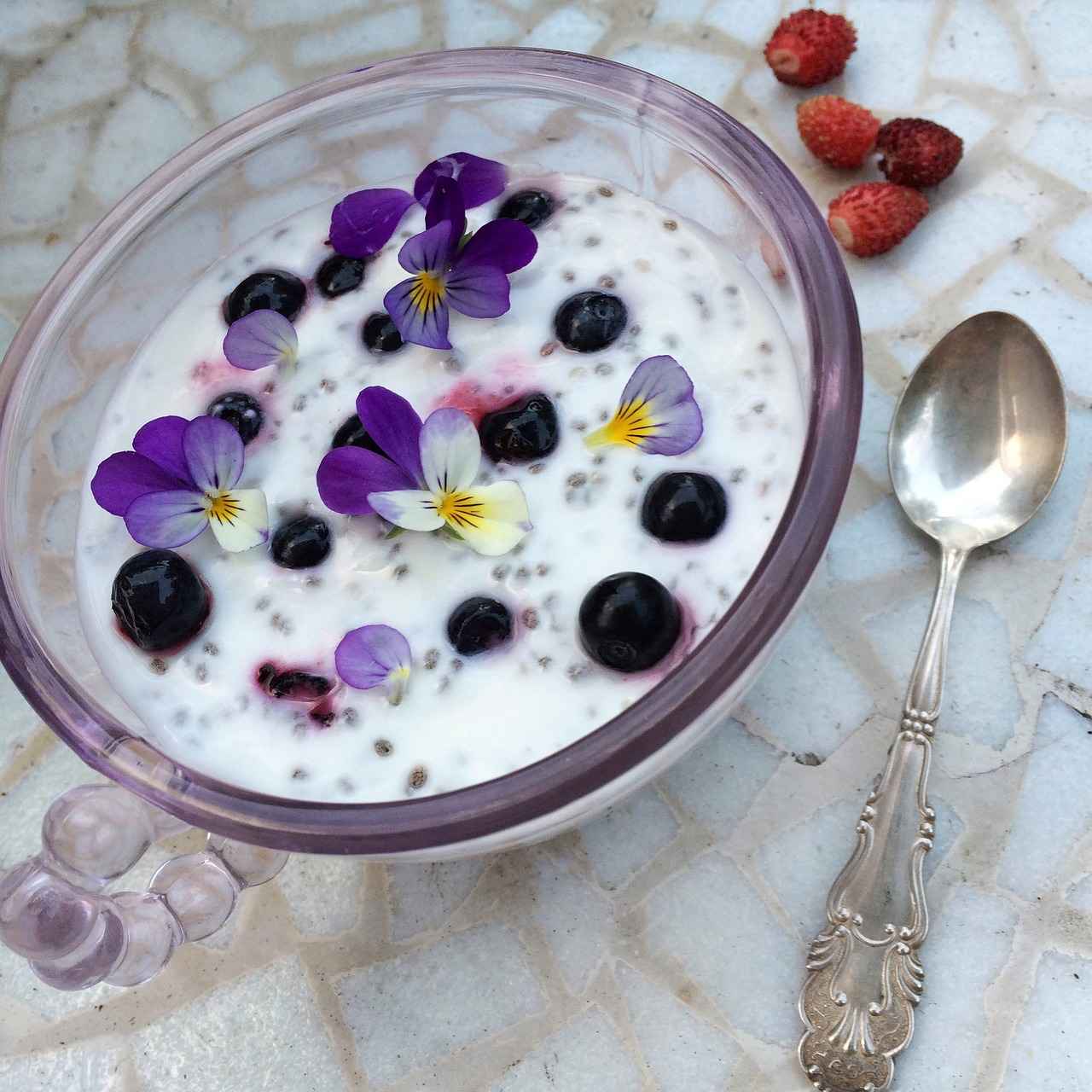
Why Are Chia Seeds Considered a Superfood?
Chia seeds have gained immense popularity in recent years, and for good reason. These tiny seeds are not only versatile in the kitchen but are also packed with a multitude of nutrients that contribute to their status as a superfood. Understanding why chia seeds are considered a superfood can help you appreciate their role in a healthy diet.
Chia seeds come from the Salvia hispanica plant, native to Central America. They are tiny, black, or white seeds that expand significantly when soaked in liquid, forming a gel-like consistency. This unique property is just one of the many reasons they are so beneficial.
Chia seeds are incredibly nutrient-dense. They contain:
- Omega-3 Fatty Acids: These essential fats are crucial for heart health and reducing inflammation.
- Dietary Fiber: Chia seeds are an excellent source of fiber, promoting digestive health and aiding in weight management.
- Protein: With a good amount of protein per serving, they are a great plant-based protein source.
- Antioxidants: Chia seeds are rich in antioxidants, which help combat oxidative stress and inflammation.
- Minerals: They provide essential minerals like calcium, magnesium, and phosphorus, which are vital for bone health.
The combination of these nutrients contributes to various health benefits:
- Heart Health: The omega-3 fatty acids in chia seeds can help lower cholesterol levels and maintain cardiovascular health.
- Weight Management: The high fiber content promotes a feeling of fullness, which can reduce overall calorie intake.
- Digestive Health: Fiber aids in digestion and promotes regular bowel movements, supporting a healthy gut.
- Bone Strength: Calcium and other minerals found in chia seeds contribute to stronger bones and may prevent osteoporosis.
- Energy Levels: The nutrient density of chia seeds makes them an excellent source of sustained energy, perfect for active individuals.
While chia seeds are generally safe for most people, it is essential to consume them in moderation. Overconsumption can lead to digestive discomfort due to their high fiber content. Additionally, some individuals may experience allergic reactions. Always consult with a healthcare provider if you have concerns about incorporating chia seeds into your diet.
Incorporating chia seeds into your meals is simple and versatile:
- Add them to smoothies for a nutrient boost.
- Sprinkle on oatmeal or yogurt for added texture and nutrition.
- Use them in baked goods as a healthy ingredient.
- Mix them with water or juice to create a gel that can be used in various recipes.
In summary, chia seeds are considered a superfood due to their rich nutrient profile and numerous health benefits. By understanding their value and incorporating them into your daily diet, you can enhance your overall well-being.

How Do Chia Seeds Benefit Heart Health?
Chia seeds have gained significant attention in recent years due to their impressive health benefits, particularly concerning heart health. These tiny seeds are not just a trendy addition to smoothies and salads; they are a powerhouse of nutrients that can contribute to a healthier heart.
One of the most notable features of chia seeds is their high content of omega-3 fatty acids. These essential fats are crucial for maintaining a healthy heart as they help to reduce inflammation, lower blood pressure, and improve cholesterol levels. Research suggests that a diet rich in omega-3s can lead to a decreased risk of heart disease and stroke. In fact, chia seeds contain more omega-3 fatty acids than salmon, making them an excellent plant-based source for those who follow vegetarian or vegan diets.
In addition to omega-3s, chia seeds are also packed with dietary fiber. This fiber plays a vital role in heart health by helping to lower cholesterol levels. When consumed, the soluble fiber in chia seeds forms a gel-like substance in the stomach, which can help to bind cholesterol and bile acids. This process aids in the excretion of cholesterol from the body, thereby reducing overall cholesterol levels and promoting a healthier cardiovascular system.
Furthermore, the anti-inflammatory properties of chia seeds contribute to heart health. Chronic inflammation is a significant risk factor for heart disease, and incorporating chia seeds into your diet can help combat this issue. The antioxidants present in chia seeds, such as quercetin and chlorogenic acid, work to neutralize free radicals in the body, reducing oxidative stress and inflammation.
Moreover, chia seeds can help regulate blood sugar levels, which is essential for heart health. Stable blood sugar levels can prevent spikes that lead to insulin resistance, a condition often associated with heart disease. The combination of fiber and healthy fats in chia seeds slows down the absorption of sugar into the bloodstream, promoting better blood sugar control.
Incorporating chia seeds into your daily diet is simple and versatile. You can add them to smoothies, sprinkle them on salads, or mix them into yogurt or oatmeal. They can also be used in baking, providing a nutritious boost to your favorite recipes.
Overall, the benefits of chia seeds for heart health are supported by a growing body of research. Their rich nutrient profile, including omega-3 fatty acids, fiber, and antioxidants, makes them a valuable addition to any heart-healthy diet. By integrating chia seeds into your meals, you can take a proactive step towards enhancing your cardiovascular health.
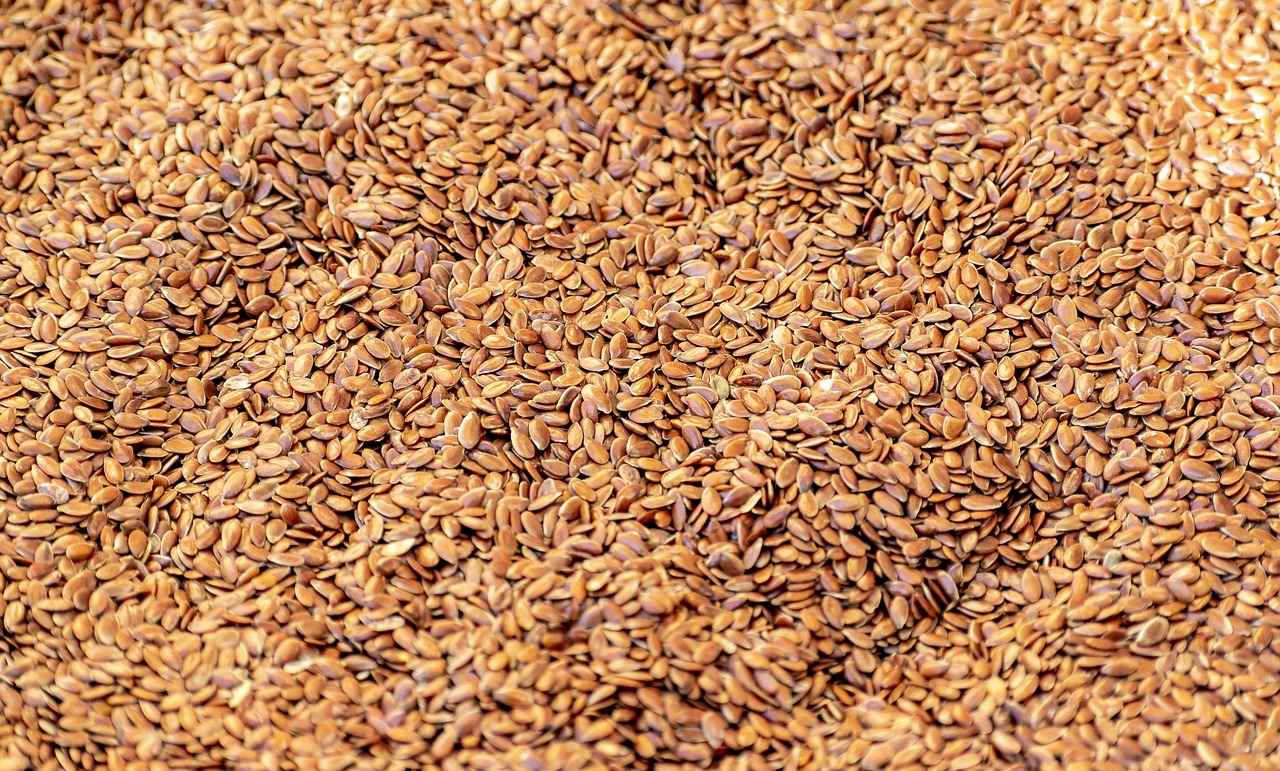
Can Chia Seeds Aid in Weight Management?
When it comes to weight management, many individuals seek effective strategies to help achieve their goals. One such strategy involves incorporating chia seeds into the diet. These tiny seeds, derived from the Salvia hispanica plant, have gained popularity for their remarkable health benefits, particularly in promoting feelings of fullness.
What Makes Chia Seeds Effective for Weight Management?
Chia seeds are exceptionally rich in dietary fiber, containing about 11 grams of fiber per ounce. This high fiber content is crucial as it absorbs water and expands in the stomach, creating a gel-like substance. As a result, chia seeds can significantly increase satiation, helping to curb hunger and reduce overall calorie intake.
How Do Chia Seeds Help Control Appetite?
- Volume and Gel Formation: When chia seeds are mixed with liquid, they can swell up to 10-12 times their original size. This swelling effect not only promotes a feeling of fullness but also slows down the absorption of food, leading to prolonged satiety.
- Blood Sugar Regulation: The fiber in chia seeds helps stabilize blood sugar levels. By preventing spikes and crashes in blood sugar, chia seeds can help manage cravings and reduce the likelihood of overeating.
Are There Additional Benefits of Chia Seeds in Weight Management?
In addition to their appetite-suppressing qualities, chia seeds offer other health benefits that can indirectly support weight management:
- Nutrient Density: Chia seeds are packed with essential nutrients, including omega-3 fatty acids, protein, and antioxidants. This nutrient density can help ensure that your body receives the necessary vitamins and minerals while on a calorie-restricted diet.
- Hydration: The ability of chia seeds to absorb water also aids in maintaining hydration, which is vital for optimal metabolic function and can help reduce feelings of hunger.
How Can You Incorporate Chia Seeds into Your Diet?
To reap the benefits of chia seeds for weight management, consider the following practical tips:
- Chia Pudding: Mix chia seeds with your favorite milk or a dairy alternative and let it sit overnight. Add fruits and nuts for a nutritious breakfast or snack.
- Smoothies: Blend chia seeds into your smoothies for added fiber and texture.
- Baking: Incorporate chia seeds into baked goods like muffins or bread for an extra nutritional boost.
Are There Any Considerations When Using Chia Seeds?
While chia seeds are generally safe for most people, moderation is key. Consuming excessive amounts can lead to digestive discomfort due to their high fiber content. It is advisable to start with a small serving and gradually increase your intake to allow your body to adjust.
In summary, chia seeds are a powerful ally in weight management due to their high fiber content and ability to promote feelings of fullness. By incorporating these seeds into your daily diet, you can take a significant step towards achieving your weight management goals while enjoying their numerous health benefits.
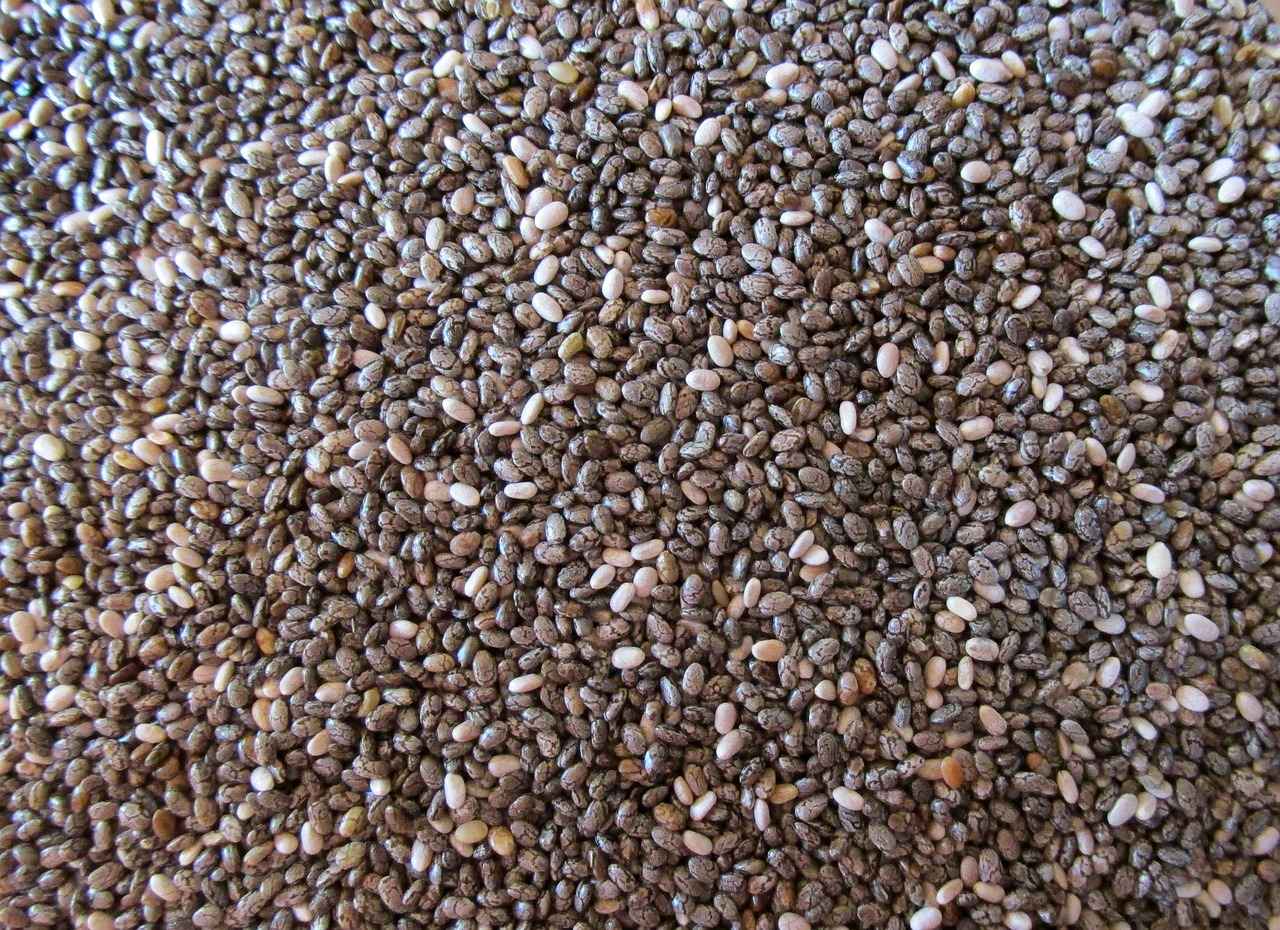
What Role Do Chia Seeds Play in Digestive Health?
Chia seeds, often hailed as a superfood, offer a plethora of health benefits, particularly when it comes to digestive health. Their high fiber content is a key player in promoting a well-functioning digestive system. In this section, we will explore how chia seeds contribute to gut health and why they should be a staple in your diet.
The primary component of chia seeds that aids in digestion is their impressive fiber content. With approximately 10 grams of fiber per ounce, chia seeds are one of the richest sources of fiber available. This high fiber content plays several crucial roles in maintaining digestive health:
- Regular Bowel Movements: The soluble fiber in chia seeds absorbs water and forms a gel-like substance in the gut. This process helps to bulk up stool and promotes regular bowel movements, reducing the risk of constipation.
- Gut Microbiome Support: A healthy gut microbiome is essential for overall digestive health. The fiber in chia seeds acts as a prebiotic, nourishing beneficial gut bacteria. This support can enhance digestion and improve nutrient absorption.
- Reduced Digestive Discomfort: Including chia seeds in your diet may help alleviate symptoms of digestive discomfort, such as bloating and gas, by promoting a more balanced digestive process.
Fiber is a crucial component of a healthy diet, offering numerous benefits beyond just aiding digestion. It helps regulate blood sugar levels, lowers cholesterol, and may even aid in weight management. For digestive health, fiber is particularly important because:
- Enhances Satiety: Foods high in fiber, like chia seeds, promote feelings of fullness, which can prevent overeating and contribute to weight management.
- Promotes Healthy Gut Flora: Fiber-rich diets are linked to a diverse gut microbiome, which is essential for digestion and overall health.
- Prevents Digestive Disorders: A diet rich in fiber can help prevent various digestive disorders, including diverticulitis and irritable bowel syndrome (IBS).
Incorporating chia seeds into your daily routine is simple and versatile. Here are some practical ways to add them to your meals:
- Smoothies: Blend chia seeds into your morning smoothie for an extra fiber boost.
- Oatmeal: Stir chia seeds into your oatmeal or overnight oats to enhance texture and nutrition.
- Baked Goods: Add chia seeds to muffins, bread, or pancakes for added health benefits.
- Salads: Sprinkle them on salads for a crunchy texture and nutritional enhancement.
In conclusion, the high fiber content in chia seeds plays a vital role in promoting digestive health. By supporting regular bowel movements and fostering a healthy gut microbiome, chia seeds can significantly improve overall digestive function. Incorporating this superfood into your diet can lead to better digestive health and enhance your overall well-being.
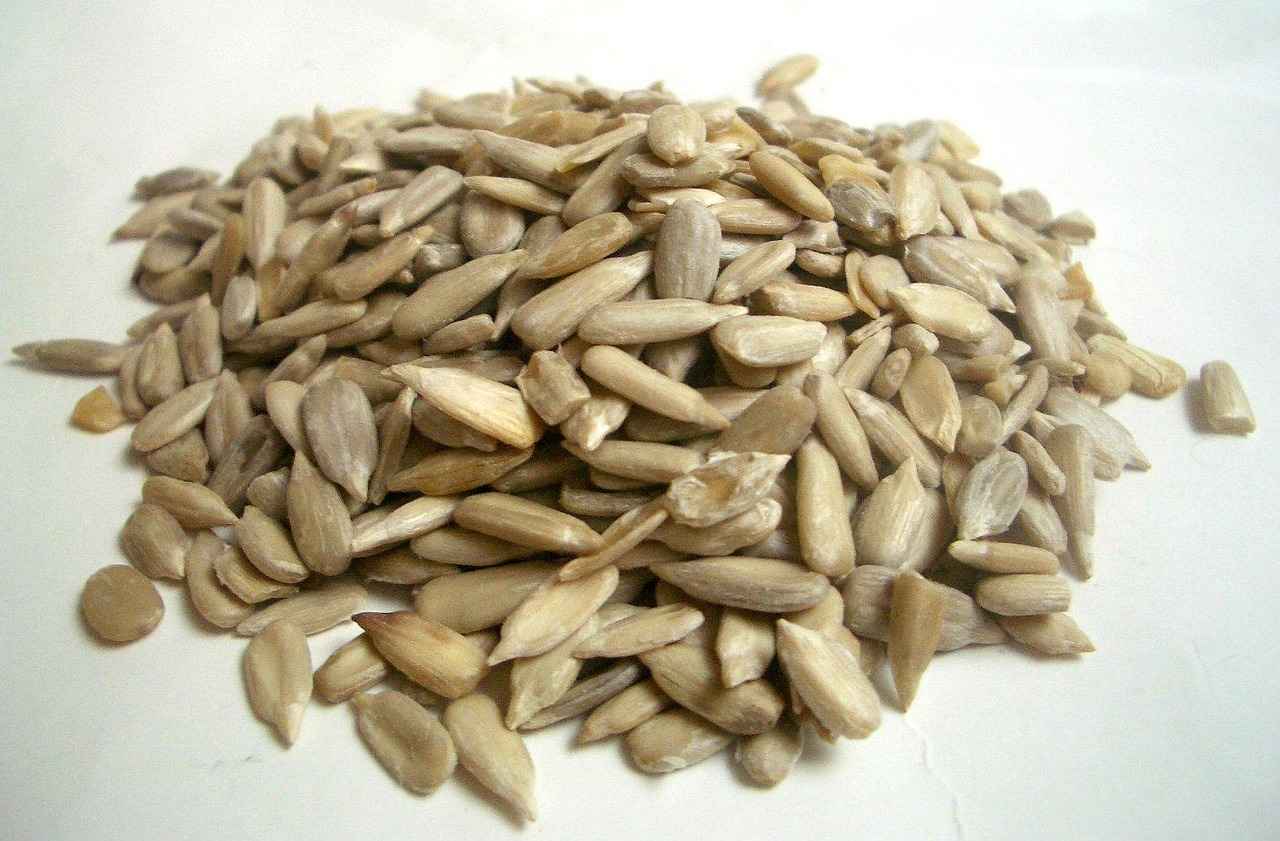
How Do Chia Seeds Support Bone Health?
When it comes to maintaining strong and healthy bones, chia seeds emerge as a powerful ally. These tiny seeds are not just a trendy superfood; they are packed with essential nutrients that play a significant role in bone health. In this section, we will delve into how chia seeds contribute to bone strength and overall skeletal wellness.
Chia seeds are rich in several minerals crucial for bone health, including:
- Calcium: Essential for bone density and strength, calcium helps in the formation of bone tissue.
- Magnesium: This mineral aids in the absorption of calcium and is vital for maintaining bone structure.
- Phosphorus: Working in tandem with calcium, phosphorus is critical for the development and maintenance of healthy bones.
Chia seeds are an excellent source of calcium, providing approximately 177 mg per 28-gram serving. This is about 18% of the recommended daily intake for adults. Including chia seeds in your diet can significantly boost your calcium levels, which is particularly beneficial for individuals who are lactose intolerant or following a vegan diet.
Magnesium, found in chia seeds at around 95 mg per serving, is often overlooked but is crucial for bone health. It helps convert vitamin D into its active form, which is necessary for calcium absorption. A deficiency in magnesium can lead to decreased bone density and an increased risk of fractures.
Osteoporosis is a condition characterized by weak and brittle bones, often due to a lack of essential minerals. The combination of calcium, magnesium, and phosphorus in chia seeds can help mitigate this risk. Regular consumption of these seeds may contribute to improved bone density and strength, making them a valuable addition to a bone-healthy diet.
While dairy products are often touted as the primary source of calcium, chia seeds provide a plant-based alternative that is easily digestible. For those looking to diversify their calcium sources, chia seeds can be an excellent option, especially for vegans and vegetarians.
Integrating chia seeds into your daily routine is simple and versatile. Here are some practical suggestions:
- Add them to smoothies for an extra nutrient boost.
- Sprinkle them on salads or yogurt for added texture and nutrition.
- Use them in baking, such as in muffins or bread, to enhance the nutritional profile.
While chia seeds are generally safe for most individuals, it’s essential to consume them in moderation. Overconsumption can lead to digestive issues due to their high fiber content. It’s advisable to start with a small amount and gradually increase your intake to allow your body to adjust.
In conclusion, chia seeds are a powerhouse of nutrients that contribute significantly to bone health. With their high content of calcium, magnesium, and phosphorus, they offer a natural and effective way to support strong bones and prevent osteoporosis. By incorporating chia seeds into your diet, you can take a proactive step towards maintaining your bone health and overall well-being.
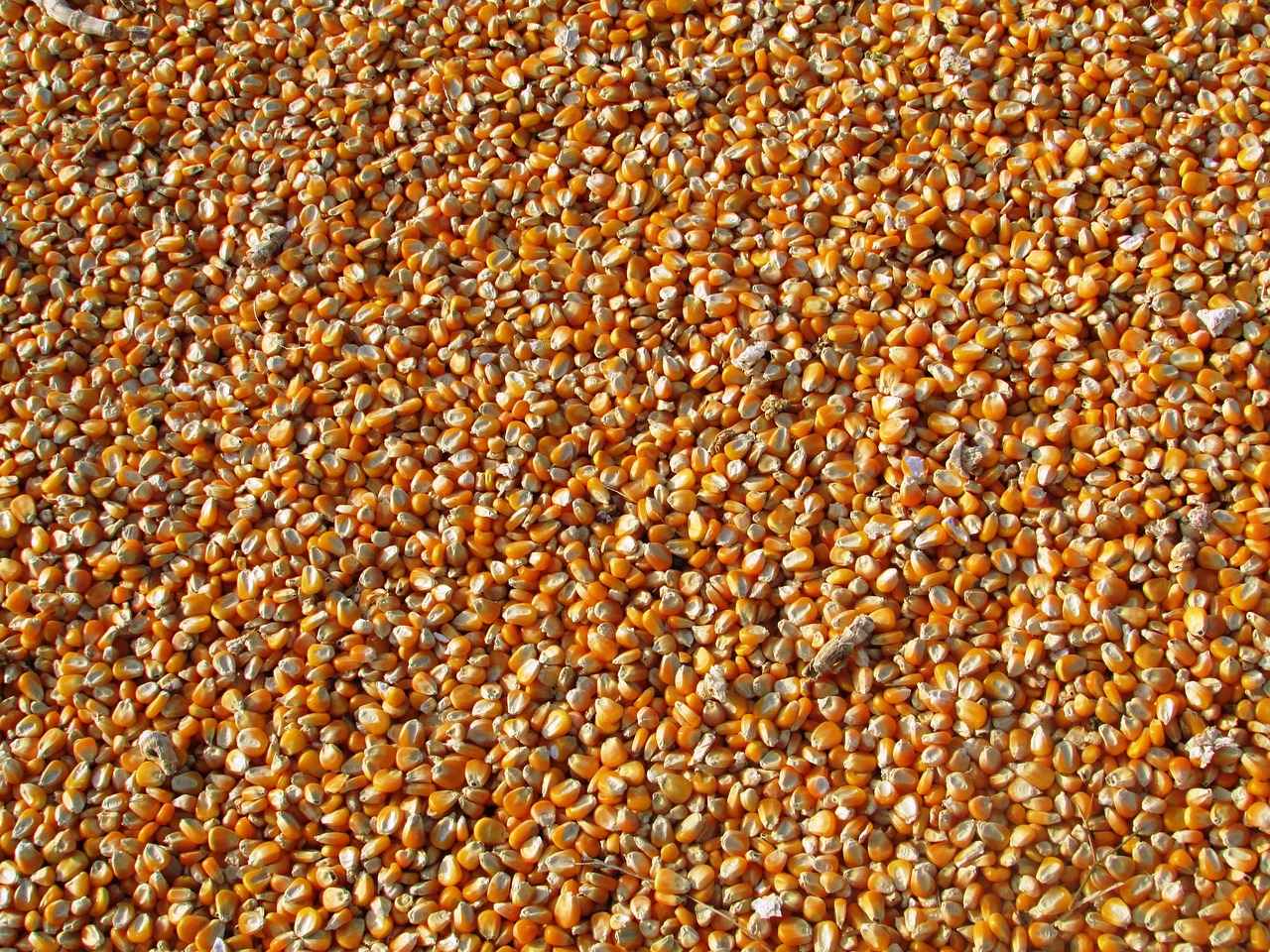
Can Chia Seeds Enhance Energy Levels?
Chia seeds, often hailed as a superfood, are not just a passing trend in the health community. Their remarkable nutrient density makes them an excellent choice for anyone looking to boost their energy levels. Packed with essential nutrients, chia seeds offer a plethora of benefits that can be particularly advantageous for athletes and those with active lifestyles.
One of the most notable features of chia seeds is their high content of omega-3 fatty acids, which are crucial for maintaining optimal energy levels. These healthy fats are known to support heart health and reduce inflammation, allowing for better physical performance. Additionally, chia seeds are rich in fiber, which can help stabilize blood sugar levels. This stabilization is critical for sustained energy, as it prevents the sharp spikes and crashes associated with high-sugar snacks.
When consumed, chia seeds can absorb up to 12 times their weight in water, forming a gel-like substance. This unique property not only aids in hydration but also contributes to a feeling of fullness, making them an ideal snack option. For athletes, this means that chia seeds can serve as a perfect pre-workout snack, providing the necessary fuel without the heaviness of traditional energy bars.
Moreover, chia seeds are a fantastic source of protein. Each serving contains about 4 grams of protein, which is essential for muscle repair and recovery. This makes them an excellent addition to post-workout meals, helping to replenish energy levels and support muscle growth.
Incorporating chia seeds into your diet is simple and versatile. They can be added to smoothies, sprinkled over salads, or mixed into yogurt. A popular way to consume them is by making chia pudding, where the seeds are soaked in milk or a dairy-free alternative overnight. This not only enhances their energy-boosting properties but also creates a delicious and nutritious snack.
For those who are concerned about caffeine or other stimulants, chia seeds provide a natural alternative. Unlike coffee or energy drinks, which can lead to jitters or crashes, chia seeds offer a gentle, sustained energy release. This makes them suitable for anyone looking to enhance their energy levels without the side effects commonly associated with stimulants.
However, it’s essential to consume chia seeds in moderation. While they are generally safe, excessive intake can lead to digestive discomfort. It’s recommended to start with a small amount and gradually increase your intake to allow your body to adjust.
In summary, chia seeds are a powerhouse of nutrition that can significantly enhance energy levels. Their combination of omega-3 fatty acids, fiber, and protein makes them an ideal snack for anyone looking to maintain sustained energy throughout the day. By incorporating chia seeds into your diet, you can enjoy a natural and effective way to boost your vitality and overall well-being.

Are There Any Potential Side Effects of Chia Seeds?
Chia seeds are celebrated for their numerous health benefits, but like any food, they can have potential side effects, especially when consumed in excess. Understanding these side effects is crucial for anyone looking to incorporate chia seeds into their diet.
While chia seeds are generally safe for most people, some may experience digestive issues. This is largely due to their high fiber content, which can lead to gas, bloating, or constipation if introduced too quickly into the diet. It is advisable to gradually increase fiber intake to allow the digestive system to adjust.
Although rare, some individuals may have an allergic reaction to chia seeds. Symptoms can include itching, hives, or gastrointestinal distress. If you suspect an allergy, it is essential to consult a healthcare professional before consuming chia seeds.
Moderation is key when it comes to chia seeds. The typical recommended serving is about 1-2 tablespoons per day. Consuming more than this may increase the likelihood of experiencing digestive discomfort. It’s important to listen to your body and adjust your intake accordingly.
Chia seeds can interact with certain medications, particularly those that affect blood sugar levels or blood pressure. Their high omega-3 fatty acid content may also have a blood-thinning effect, so individuals on anticoagulant medications should consult their doctor before adding chia seeds to their diet.
If you experience any adverse effects after consuming chia seeds, it is advisable to reduce your intake or eliminate them from your diet temporarily. Keeping a food diary can help identify whether chia seeds are the cause of any digestive issues.
- Start Small: Begin with a small amount, such as half a tablespoon, and gradually increase.
- Soak Before Consumption: Soaking chia seeds in water or other liquids can help reduce their potential to cause digestive issues.
- Stay Hydrated: Increase your water intake when consuming high-fiber foods like chia seeds to help with digestion.
Individuals with certain medical conditions, such as irritable bowel syndrome (IBS) or those who are prone to allergies, may want to avoid chia seeds or consult a healthcare provider before including them in their diet. Pregnant or breastfeeding women should also seek medical advice regarding the consumption of chia seeds.
In conclusion, while chia seeds offer numerous health benefits, it is crucial to consume them in moderation and be aware of potential side effects. By understanding how to safely incorporate them into your diet, you can enjoy their nutritional advantages while minimizing any risks.
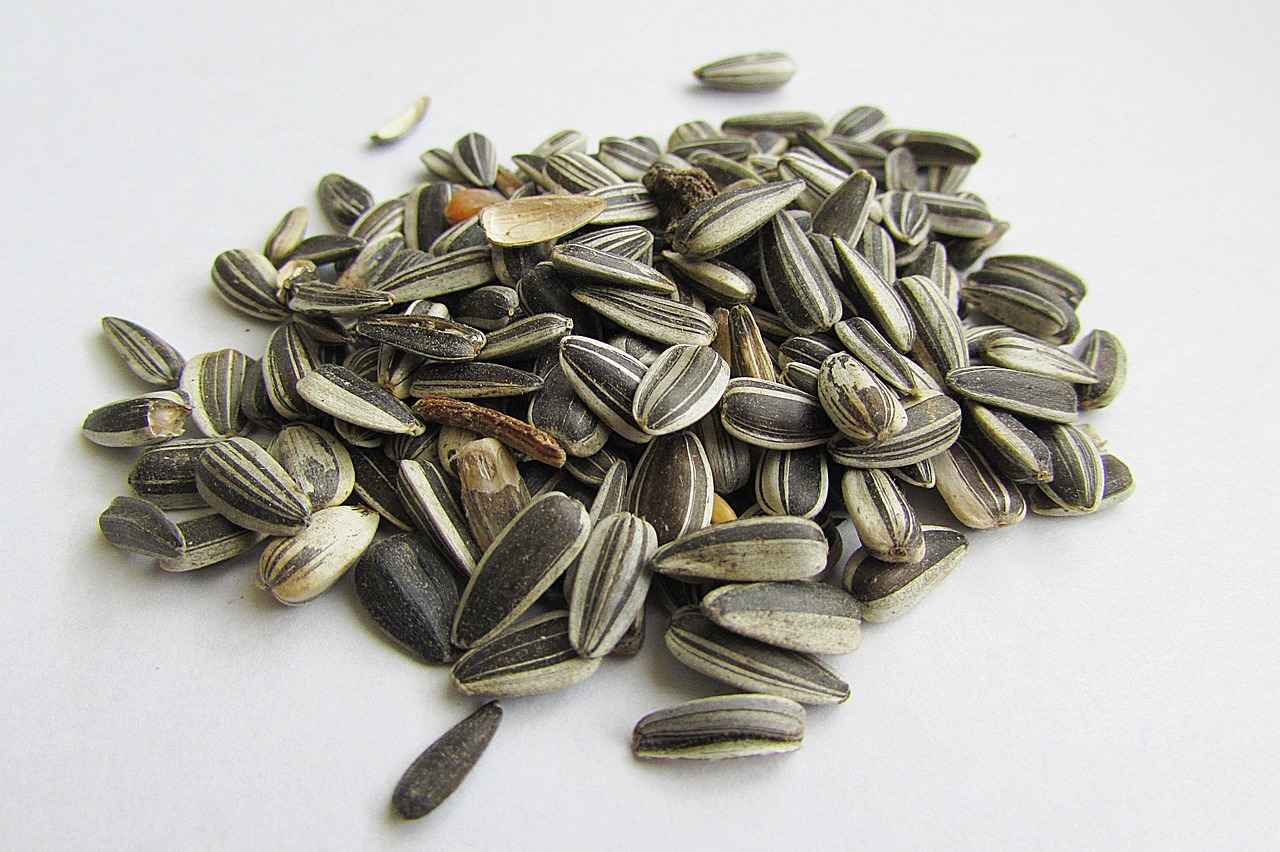
How Can You Incorporate Chia Seeds into Your Diet?
Incorporating chia seeds into your diet is not only easy but also a delicious way to enhance your meals with a boost of nutrients. These tiny seeds are incredibly versatile and can be used in a variety of dishes. Below are some creative and practical methods to seamlessly integrate chia seeds into your daily diet.
- Smoothies: Add a tablespoon of chia seeds to your favorite smoothie recipe. They blend well and can provide a thick, creamy texture while enhancing the nutritional value.
- Oatmeal: Stir chia seeds into your morning oatmeal. They absorb liquid and expand, giving your oatmeal a satisfying texture and additional fiber.
- Yogurt: Mix chia seeds into yogurt for a crunchy texture and a nutritional boost. This combination makes for a perfect breakfast or snack option.
- Baked Goods: Incorporate chia seeds into muffins, bread, or pancakes. They can replace eggs in vegan recipes when mixed with water, serving as a binding agent.
- Salads: Sprinkle chia seeds on salads for added crunch and nutrition. They can enhance the flavor and provide a healthy dose of omega-3 fatty acids.
- Chia Pudding: Create a simple chia pudding by mixing chia seeds with your choice of milk or a dairy alternative. Let it sit overnight, and in the morning, you’ll have a delicious, nutritious breakfast ready to go.
Chia seeds can also be added to beverages. For example, try mixing them into your favorite juice or water for a refreshing drink that keeps you hydrated and nourished. The seeds absorb water, creating a gel-like consistency that can be quite refreshing.
For those who enjoy cooking, consider using chia seeds in savory dishes as well. They can be added to soups or stews to thicken the broth and enhance the nutritional profile. Additionally, chia seeds can be used as a topping for popcorn or mixed into homemade energy bars for a healthy snack on the go.
When incorporating chia seeds into your diet, it’s important to start with small amounts, especially if you are not used to high-fiber foods. Gradually increase your intake to allow your digestive system to adjust. Remember to drink plenty of water throughout the day, as chia seeds absorb liquid and can lead to dehydration if not consumed with adequate fluids.
In summary, chia seeds are a fantastic addition to any diet. Their versatility allows for easy integration into various meals, from breakfast to snacks and even savory dishes. By experimenting with different recipes and methods, you can enjoy the numerous health benefits that chia seeds have to offer while keeping your meals exciting and nutritious.

Where to Buy High-Quality Chia Seeds?
When it comes to enhancing your health through diet, chia seeds have gained a reputation as a powerful superfood. However, ensuring that you purchase the right seeds is crucial to reaping their benefits. In this section, we will delve into the important factors to consider when buying chia seeds, focusing on quality, sourcing, and how to identify reputable brands.
Quality is paramount when it comes to chia seeds. Organic and non-GMO options are recommended as they are grown without harmful pesticides and genetic modifications. This not only ensures a cleaner product but also preserves the nutritional integrity of the seeds. When you choose high-quality chia seeds, you are investing in your health.
- Reputation: Choose brands known for their commitment to quality and transparency. Look for customer reviews and testimonials.
- Certifications: Seek brands that provide certifications such as USDA Organic or Non-GMO Project Verified, which indicate adherence to strict standards.
- Freshness: Check the packaging date and expiration date. Fresh seeds retain their nutritional value better than older stock.
High-quality chia seeds can be found in various places:
- Health Food Stores: Local health food stores often carry a selection of organic chia seeds from reputable brands.
- Online Retailers: Websites like Amazon, Thrive Market, and specialty health food sites often provide a wide range of options, complete with customer reviews and ratings.
- Farmers’ Markets: Purchasing from local farmers can ensure you are getting fresh, organic chia seeds while supporting local agriculture.
When purchasing chia seeds, pay attention to the packaging. Look for:
- Opaque Bags: Seeds are sensitive to light, so opaque packaging helps protect them from degradation.
- Resealable Bags: Resealable packaging can help maintain freshness after opening.
- Clear Labels: Labels should clearly state the ingredients, nutritional information, and sourcing details.
When shopping for chia seeds, be wary of:
- Unclear Sourcing: Brands that do not disclose where their seeds are sourced may not prioritize quality.
- Excessive Additives: High-quality chia seeds should contain no additives or preservatives.
- Unrealistic Pricing: If a deal seems too good to be true, it might be worth investigating further. Quality seeds come at a fair price.
In summary, when purchasing chia seeds, it is essential to seek out reputable brands that offer organic, non-GMO options to ensure you are getting the highest quality seeds. By paying attention to factors such as brand reputation, packaging, and sourcing, you can make informed choices that will enhance your health and well-being.
Frequently Asked Questions
- What are the main health benefits of chia seeds?
Chia seeds are packed with omega-3 fatty acids, fiber, protein, and antioxidants, which contribute to heart health, weight management, and digestive health.
- How can chia seeds help with weight loss?
Due to their high fiber content, chia seeds can absorb water and expand in your stomach, helping you feel fuller for longer and potentially reducing your overall calorie intake.
- Can chia seeds improve my digestive health?
Absolutely! The fiber in chia seeds promotes regular bowel movements and supports a healthy gut microbiome, enhancing your overall digestive health.
- Are there any side effects of consuming chia seeds?
While generally safe, consuming too many chia seeds can lead to digestive discomfort or allergic reactions in some individuals, so moderation is key!
- How can I add chia seeds to my diet?
You can easily incorporate chia seeds into your meals by adding them to smoothies, yogurt, oatmeal, or even baked goods for an extra nutritional boost!
- Where should I buy chia seeds?
Look for high-quality chia seeds from reputable brands that offer organic, non-GMO options to ensure you’re getting the best for your health.

